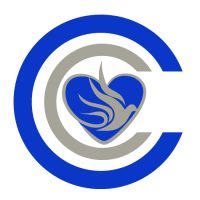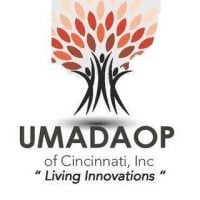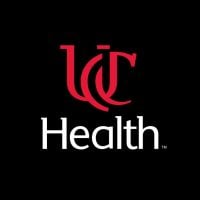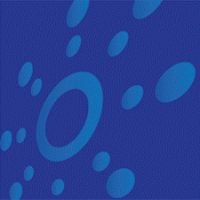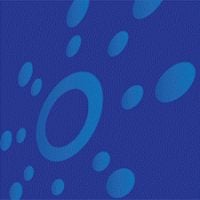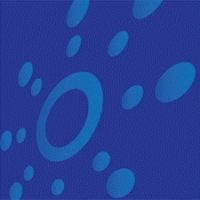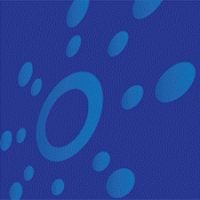The Crossroads Center
Drug Rehab Center in Cincinnati, Ohio
The Crossroads Center is an accredited treatment center in Cincinnati, Ohio which specializes in treating substance abuse and addiction and offers a wide range of support services such as 12-step facilitation, counseling, and therapy utilizing an evidence-based, multidisciplinary approach.
About This Cincinnati, OH Facility
The Crossroads Center, located in Cincinnati, Ohio, provides comprehensive behavioral healthcare in a holistic manner, ensuring access and quality to diverse individuals. This private rehab facility specializes in treating drug and alcohol abuse through individualized treatment plans.
Since 1951, The Crossroads Center has been helping those struggling with substance abuse problems through quality addiction treatment programs and services. Their focus lies in providing culturally and linguistically congruent care to cater to each client's unique recovery needs.
The Crossroads Center offers a range of programs to address drug and alcohol addictions, including residential inpatient treatment, medication-assisted treatment, intensive outpatient programs, general outpatient programs, and an adolescent outpatient program specifically designed for individuals aged 12-17 and their families.
- Residential inpatient programs provide 24-hour structured care and a safe haven for recovery.
- The medication-assisted treatment program aids in safe detoxification and includes counseling services.
- Intensive outpatient programs offer at least nine hours of weekly group therapy and additional support services.
- General outpatient programs provide flexible, tailored treatment with weekly counseling sessions.
Accredited by JCAHO and SAMHSA, The Crossroads Center offers evidence-based therapies, relapse prevention strategies, and a multidisciplinary approach to addiction treatment. Services include individual, group, and family counseling, case management, crisis intervention, drug screening, and somatic medical services.
For individuals seeking help with drug or alcohol addiction, The Crossroads Center provides a comprehensive and culturally sensitive environment. Their holistic approach aims to address the unique needs of each client, supporting them on their journey to long-term recovery.
Genders
Ages
Modality
Additional
Accreditations
SAMHSA

JCAHO
Conditions and Issues Treated
Using both legal medications and illegal substances in order to maintain an addiction is substance abuse. Illegal substances can become addictive after a single use. If you are obtaining legal medications illegally, you may be suffering from substance abuse.
Fortunately facilities like The Crossroads Center in Cincinnati, OH are here to help.
Opioid addiction treatment facilities in Ohio, like The Crossroads Center cover both illegal and prescription opioids abuse. Most plans include detoxification and subsequent medications to ease the process. Behavioral therapies and counseling are also necessary to resolve the root cause of addiction.
When someone in Ohio struggles with both addiction and mental or emotional illness, this is considered a dual diagnosis. Dual diagnosis treatment can include emotional trauma, bipolar disorder, schizophrenia, depression. Getting treatment for these issues must occur at the same time to treat either of them effectively.
Levels of Care Offered
This center offers a variety of custom treatment tailored to individual recovery. Currently available are Aftercare Support, Detox, Drug Rehab, Dual-Diagnosis, Inpatient, Intensive Outpatient, Outpatient, Residential, with additional therapies available as listed below.
A detox program helps the person physically withdraw from drugs and helps them track their progress. So, suppose the person isn’t ready for sobriety (or relapses). In that case, the treatment professionals can catch it early and help re-orient them towards recovery.
In order to focus on the psychological aspects of addiction, one must first address the physical symptoms of withdrawal.
Withdrawal symptoms can be painful, even fatal, so managing the detox process carefully is critical. Severe withdrawal symptoms are often treated with more advanced pharmaceutical interventions. Nausea and headaches are common side effects of detoxification.
Inpatient rehabilitation aims to treat severe addictions and co-occurring disorders. Depending on individual requirements, the duration of the stay at The Crossroads Center ranges from four weeks to six months. Ohio inpatient recovery guarantees that the patient resides in an environment free of drugs.
An intensive outpatient treatment program is set up for those struggling with an addiction to begin the recovery process. Patients come to Cincinnati, OH to The Crossroads Center for therapy, support, programs, and medical supervision. Intensive outpatient treatment is often very tightly scheduled and heavily structured.
Residential treatment programs are those that offer housing and meals in addition to substance abuse treatment. Rehab facilities that offer residential treatment allow patients to focus solely on recovery, in an environment totally separate from their lives. Some rehab centers specialize in short-term residential treatment (a few days to a week or two), while others solely provide treatment on a long-term basis (several weeks to months). Some offer both, and tailor treatment to the patient’s individual requirements.
Treatment for substance abuse does not cease after an individual successfully completes a detox or rehabilitation program. A vital follow-up treatment service is aftercare support provided to individuals at The Crossroads Center in Ohio after they attain initial sobriety.
Aftercare support often takes the following forms: 12-Step Programs, Outpatient Treatment Programs, and Support Groups. The most effective aftercare programs are tailored to meet an individual’s specific needs and circumstances.
The Crossroads Center‘s Therapies & Programs
Treatment programs include individual therapy for the greatest chances of success. Customized individual therapy is counseling involving you and your The Crossroads Center counselor. Individual therapy leads to greater peace and understanding about your triggers for addiction.
Spousal relationships bear the brunt of alcohol and drug dependence. It becomes critical to submit the relationship to couples therapy to prevent straining it further. Some facilities like The Crossroads Center in Cincinnati, OH offer couples therapy options to manage intimate partnerships amid the recovery process. Other couples-focused treatment plans can provide the patient and their partner tools to get things back to normal.
When family members are more proactive and involved in the treatment procedure, it encourages the patient to advance his or her progress. Moreover, it shouldn’t be ignored that genetics play a role when it comes to addiction, so it’s better to approach the problem as a unit. Also, with proper education, family members can help an individual avoid addiction triggers and guide him or her in making lifestyle changes necessary for his or her sobriety.
It has been said that unhealed trauma is the root of most addictions. Trauma therapy is a way of addressing trauma while in a safe situation in order to heal. Healing past traumas and introducing coping strategies are strong foundations for sustained recovery from addiction. This may involve individual or group counseling or both, in a Cincinnati, OH facility. Other forms of therapy have been proven to assist in healing past traumas.
Cognitive Behavioral Therapy (CBT) is a type of psychotherapy that focuses on the underlying thoughts and behaviors that caused the problem of addiction in the first place and may cause a relapse. Negative feelings are common in substance abuse disorders, and if not recognized, they can cause co-occurring disorders.
CBT involves strategies that help to change the thinking and behavioral pattern by cognitive restructuring. In simple terms, it helps to remove negative thoughts and provides long-term benefits. Also, CBT promotes self-awareness, self-control, and healthy ways to respond to negative thoughts. It can be administered as a mono-therapy as well as a part of combination therapy.
The 12-step program is a part of substance abuse treatment. In this program, peers help each other to achieve the goal of abstinence. It was initially developed by the founders of Alcoholics Anonymous. Due to its huge success, the 12-step program is included as a part of other substance abuse treatments.
The 12 steps guide at an individual level. It begins with the individuals accepting that they are addicts, and they understand its consequences. It is followed by focusing on the recovery process and making amends for hurting others. The program provides the benefit of cognitive restructuring, which refers to the process of change in the negative thoughts that leads to long-term benefits.
Payment Options Accepted
For specific insurance or payment methods please contact us.
Is your insurance accepted?
Ask an expert, call (888) 674-0062
Additional Details
Specifics, location, and helpful extra information.
Cincinnati, Ohio 45219 Phone Number(513) 475-5300 Meta DetailsUpdated April 15, 2024
Staff Verified
Patient Reviews
There are no reviews yet. Be the first one to write one.
Cincinnati, Ohio Addiction Information
Ohio is suffering from a drug abuse problem that is costing thousands of its residents their lives every single year. Opioids, particularly Fentanyl and heroin, are the leading drugs in the state. The state ranks in the top 10 for illicit use of painkillers. Opioid-related overdose rates in Ohio are by far some of the highest in the country.
In Cincinnati, OH, more than 400 drug-related deaths were in 2016. There were over 5 million drug prescriptions written in 2015. This is a 20% increase from 2010. Drug addiction and abuse can lead to crime and violence and harm public health. Inpatient treatment facilities provide around-the-clock care and supervision. 12-step programs, such as Alcoholics Anonymous or Narcotics Anonymous, are widely available in Cincinnati.
Treatment in Nearby Cities
- Perrysburg, OH (173.7 mi.)
- McArthur, OH (108.7 mi.)
- Grafton, OH (196.4 mi.)
- Springboro, OH (32.2 mi.)
- Wheelersburg, OH (92.9 mi.)
Centers near The Crossroads Center
The facility name, logo and brand are the property and registered trademarks of The Crossroads Center, and are being used for identification and informational purposes only. Use of these names, logos and brands shall not imply endorsement. RehabNow.org is not affiliated with or sponsored by The Crossroads Center.
